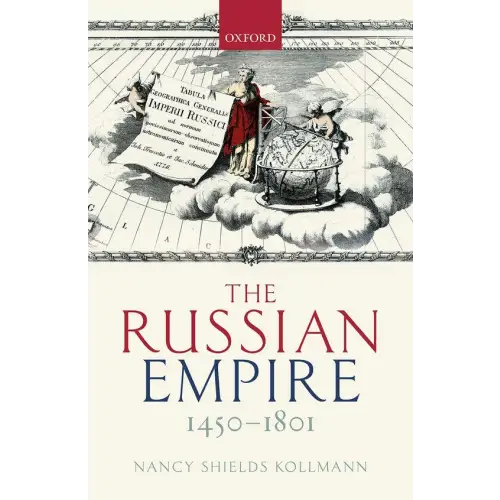Modern Russian identity and historical experience have been largely shaped by Russia's imperial past: an empire established in the early modern period, much of which continues today. The Russian Empire 1450-1801 examines how the territories that made up the empire were conquered and how they were governed. It considers the Russian Empire a "Eurasian empire," characterized by a "politics of difference": rulers and their elites at the center minimally determined state needs—with control over defense, criminal justice, taxation, and resource mobilization—and otherwise tolerated local religions, languages, cultures, elites, and institutions. The central authority permitted vertical relationships with communities and religions, granting each a degree of rights and autonomy, but did not allow horizontal connections between nobility, townspeople, or other groups with potentially shared interests to merge. Thus, the Russian Empire was multi-ethnic and multi-religious; Nancy Kollmann pays detailed attention to the major ethnic and religious groups and examines the government's strategies of governance—centralized bureaucracy, military reform, and a transformed legal system. This reference work focuses particularly on the dissemination of a supranational ideology of political legitimacy through various media—written sources and primarily public rituals, painting, and especially architecture. Beginning with fundamental features such as geography, climate, demography, and geopolitical situation, The Russian Empire 1450–1801 examines the empire's primarily agrarian economy, serfdom, cities, and trade, as well as its many religious groups—primarily Orthodoxy, Islam, and Buddhism. It traces the rise of an "imperial nobility" and a national self-consciousness that, by the end of the eighteenth century, was distinctly imperial, embracing the diversity of the empire's many peoples and cultures.

